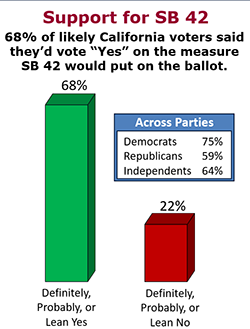In the legislative session just ended, state lawmakers gave
speeches and cast votes intended to show they are on the
side of good and open government.
They did, in fact, approve noteworthy restrictions on how
they do business. But they took a collective walk on one of
the most far-reaching measures of the year, Senate Bill
52.
SB 52 by Sens. Mark Leno, D-San Francisco, and Jerry Hill,
D-San Mateo, sought to help voters understand who is behind
campaigns for and against ballot measures by requiring that
the identities of the donors be listed clearly on radio and
television commercials.
Courts increasingly take a dim view on donation
restrictions. This makes the Legislature's failure to
expand transparency by approving SB 52 all the more
troubling.
The bill, sponsored by the California Clean Money Campaign,
sought to require disclosure of the first few donors to a
measure. It would apply to the left and right, corporate
and labor. Tobacco giant Philip Morris, oil magnates
Charles and David Koch, San Francisco
billionaire-environmentalist Tom Steyer, Service Employees
International Union and California Teachers Association all
would be identified.
Many opponents had unsheathed their knives ready to kill
the bill. Corporate donors disliked the disclosure
requirement, and they were joined by union lobbyists and
attorneys who contended the bill would have imposed
untenable burdens on labor donors.
With negotiations at an impasse, backers came up with a
compromise that the Fair Political Practices Commission be
charged with responsibility for sorting out who should be
identified as early donors. However, no political
consultant is eager to grant the FPPC greater authority.
The watchdog agency takes pride in being an equal
opportunity regulator, thankfully so.
The bill, which sought to amend California's Political
Reform Act, required a two-thirds vote. The
Democratic-controlled Senate had approved an early version
of it in May. But in the Assembly, where Democrats hold
even greater majority, the bill never even came up for a
vote.
Democrats aren't solely to blame. Republicans share in the
shame. GOP leaders used to claim that they oppose campaign
contribution limits and instead support the notion of full
public disclosure. When given the opportunity to put their
stated view into practice by supporting SB 52, they turned
their backs, with one exception. Sen. Anthony Cannella,
R-Ceres, was the only Republican to vote for the bill. Good
for him.










